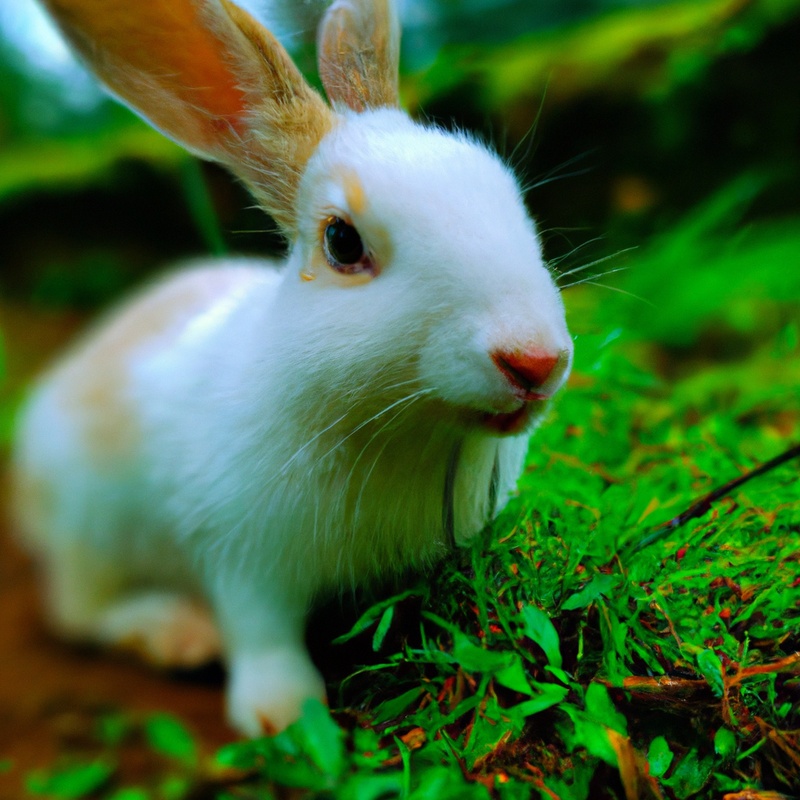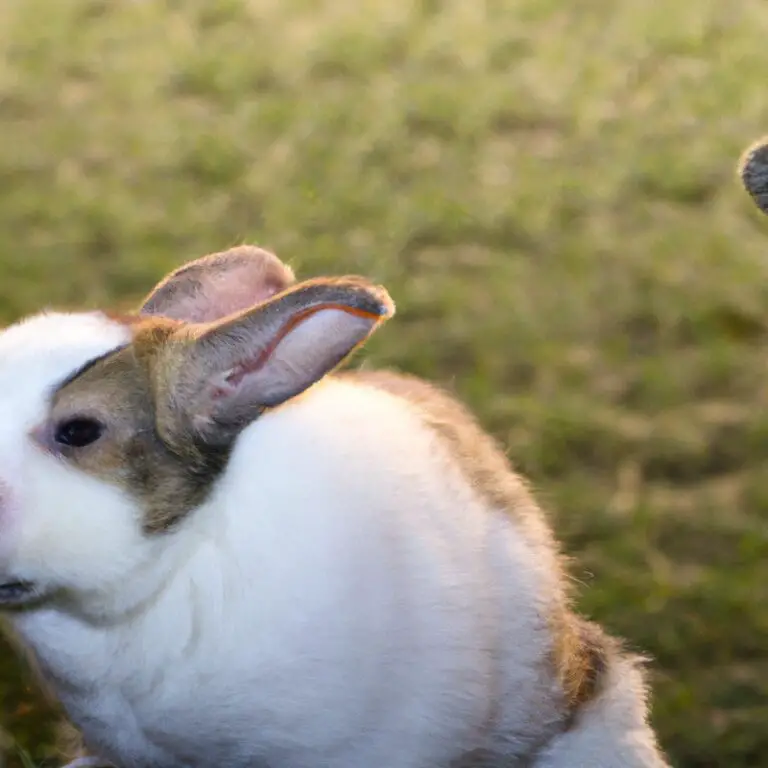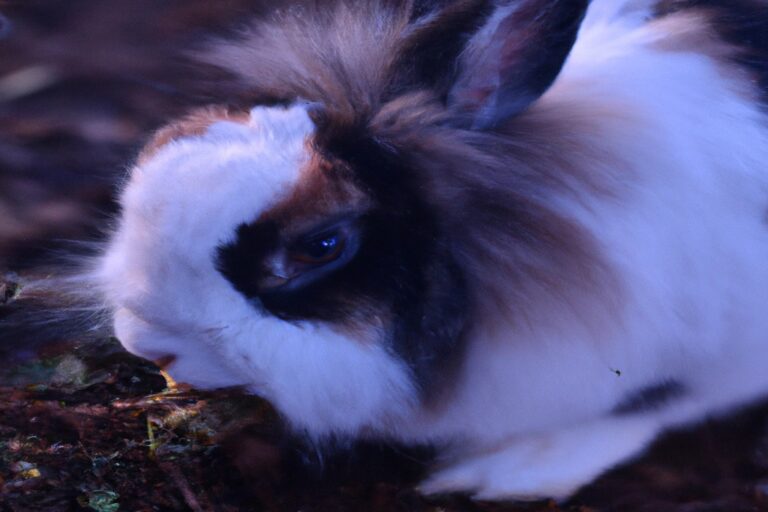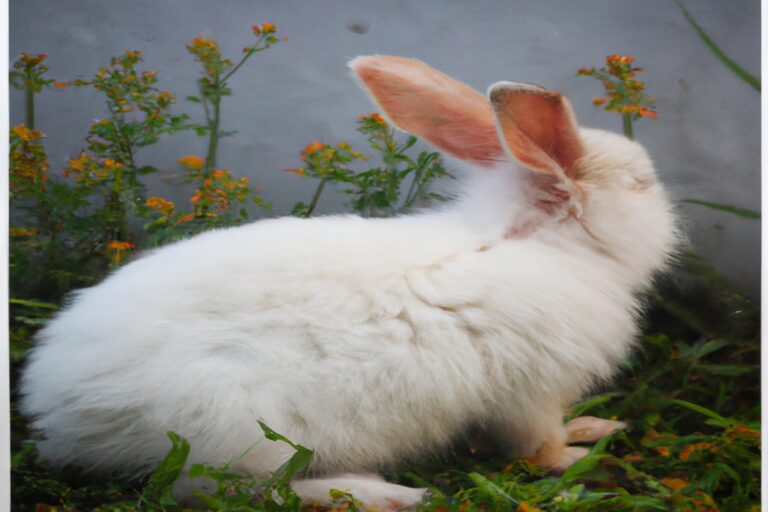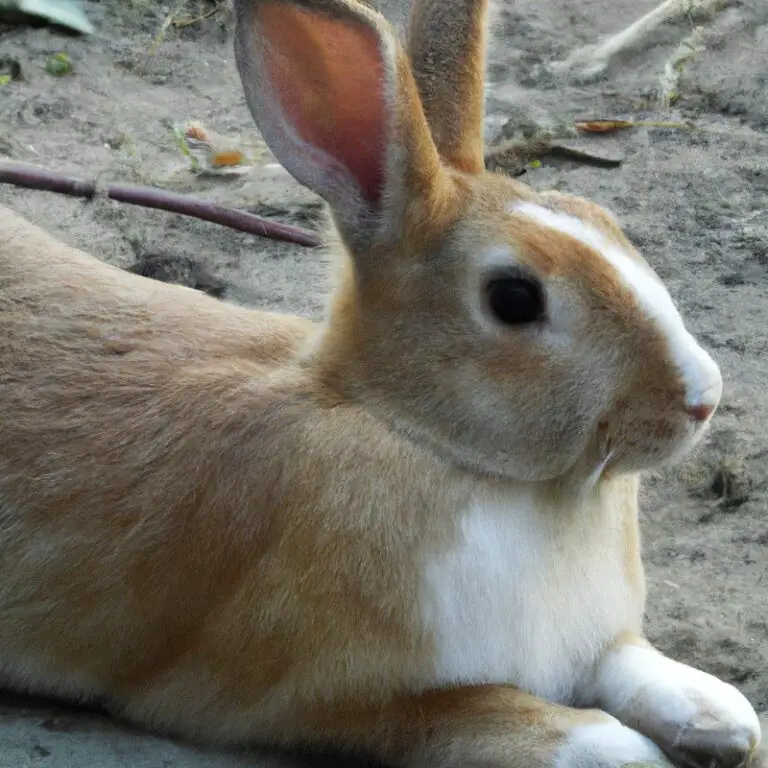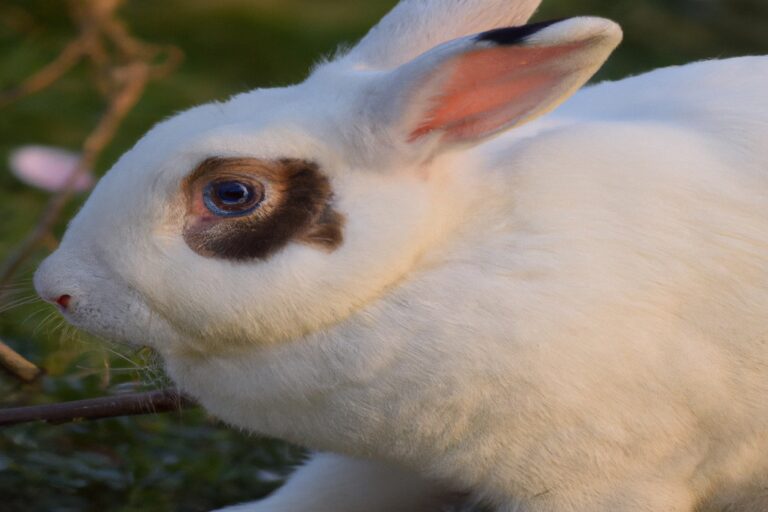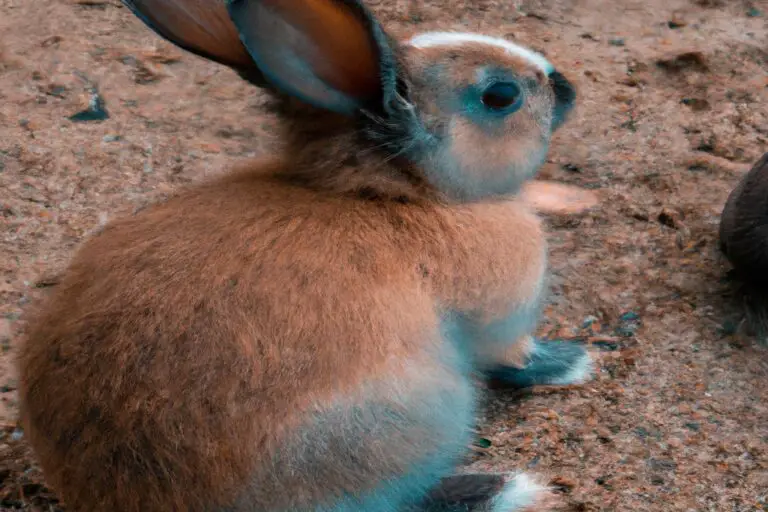Do Rabbits Go Into Heat? Explained
Key Takeaways:
- Female rabbits exhibit signs of being in heat, including increased aggression and restlessness.
- Male rabbits are always ready to mate and do not go through a specific heat cycle.
- It is important to spay and neuter rabbits to prevent unwanted pregnancies and aggressive behavior.
- Rabbits can reproduce at a young age, so it is crucial to monitor their behavior and separate them if necessary.
Have you ever wondered if rabbits go into heat? Well, let me tell you, these fluffy creatures have quite the reproductive cycle! Understanding their breeding behavior is vital for every rabbit owner or enthusiast.
In this blog article, we will explore what heat means for rabbits, their reproductive cycle, and the signs that indicate a rabbit is in heat.
We’ll also discuss the duration of their heat cycle and the implications it has for owners. Plus, I’ll share valuable tips on how to care for a rabbit in heat and prevent unwanted breeding.
Get ready to dive into the fascinating world of rabbit breeding behavior!
| Rabbits | Go into Heat |
|---|---|
| Rabbits | Does (female rabbits) go into heat, also known as estrus. |
| Heat Cycles | They have four to five-day heat cycles every 14 to 16 days. |
| Physical Signs | During heat, rabbits may show increased aggression, restlessness, mounting behavior, and marking with urine. |
| Receptive Period | The doe’s receptive period lasts for 8 to 12 hours during which she is willing to mate. |
| Behavioral Changes | During heat, the doe may become more friendly or demanding attention from her owners. |
Understanding Rabbit Breeding Behavior
Understanding Rabbit Breeding Behavior: Learn about the reproductive cycle of rabbits and signs of a rabbit in heat to better care for your furry friend and prevent unwanted breeding.
What is Heat in Rabbits?
Heat in rabbits, also known as estrus or the breeding cycle, is the period when a female rabbit is sexually receptive and able to conceive. During this time, the rabbit may exhibit changes in behavior and physical signs such as restlessness, increased vocalization, and spraying urine.
The duration of heat varies among rabbits but typically lasts for a few days.
It’s important to note that male rabbits do not go into heat. Thus, understanding the heat cycle in rabbits is essential for successful breeding.
The Reproductive Cycle of Rabbits
Rabbits have a unique reproductive cycle. Females can start breeding as early as 4 to 6 months old.
They can have several litters in a year, with each pregnancy lasting around 31 days.
Rabbits don’t have a menstrual cycle like humans, but they do ovulate. Mating stimulates ovulation, and a doe can be ready to mate again within hours of giving birth.
It’s important to carefully manage breeding to ensure the health and well-being of the rabbits.
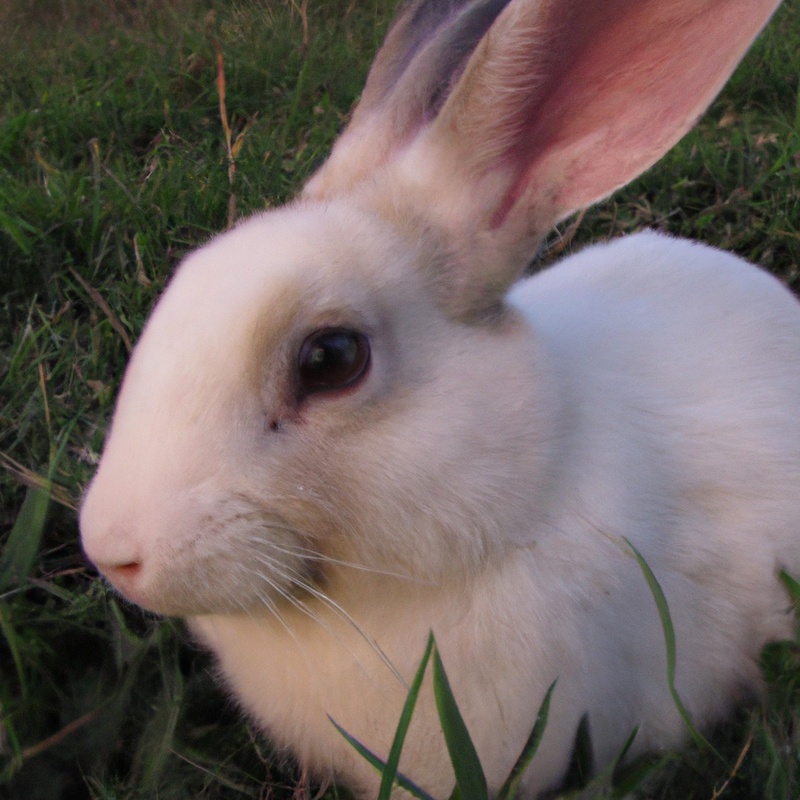
Signs of a Rabbit in Heat
A rabbit in heat exhibits several signs. Firstly, she may become more active and restless, often digging or scratching at her enclosure.
Secondly, she may make more vocalizations, including high-pitched squeaks or low growls.
Thirdly, her behavior around other rabbits may change, becoming more dominant or territorial. Additionally, she may spray urine and exhibit increased sexual behavior, such as mounting or humping objects.
By recognizing these signs, you can better understand and care for your rabbit during her heat cycle.
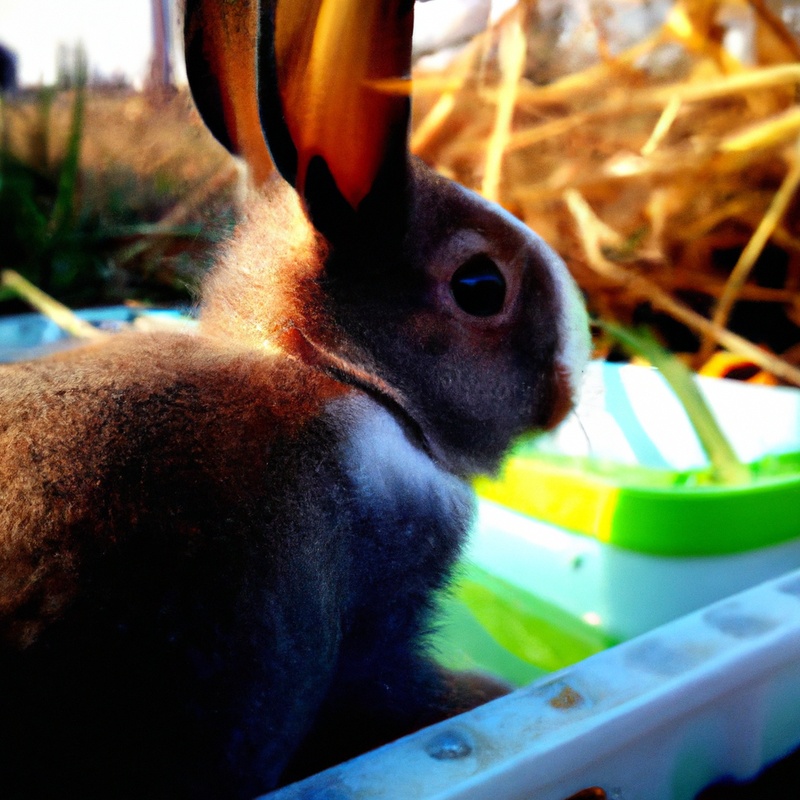
How Long Does a Rabbit Stay in Heat?
A rabbit typically stays in heat for about 12 to 13 days.
During this time, she will exhibit signs of receptivity, such as increased vocalization, restlessness, and a willingness to mate.
It’s important to note that rabbits are seasonal breeders, which means they are more likely to go into heat during certain times of the year, such as spring and autumn.
If you are considering breeding rabbits, it’s best to consult with a veterinarian or experienced breeder to ensure proper care and handling during the breeding process.
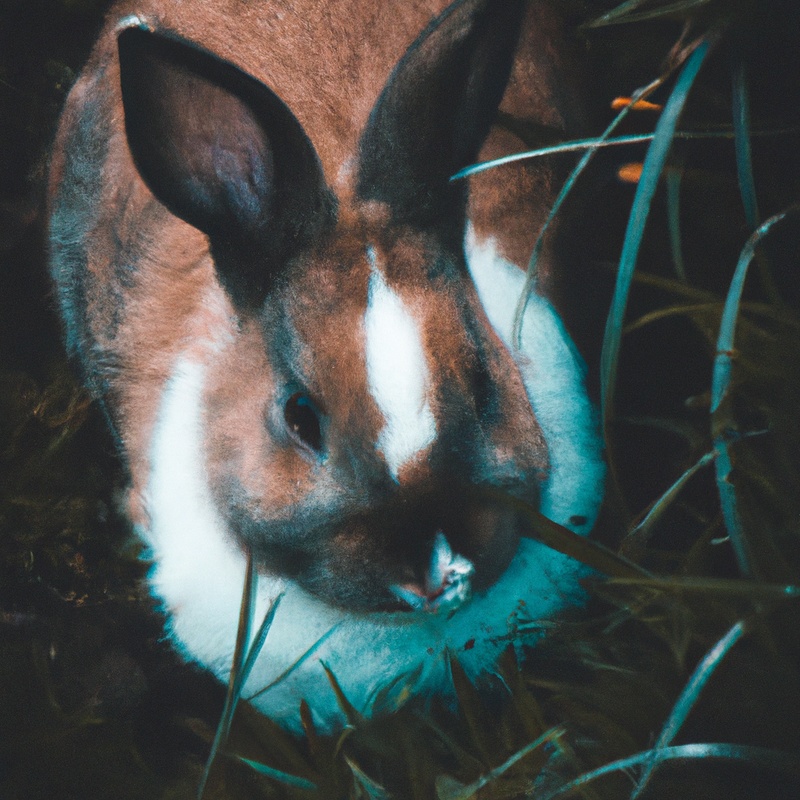
Implications of Rabbits Going into Heat
When rabbits go into heat, there are a few implications that you should be aware of. Firstly, female rabbits tend to become more aggressive during this time, so it’s important to handle them with care.
Secondly, males will become more interested in mating and may display behaviors like spraying urine to mark their territory.
Thirdly, if you’re not planning on breeding rabbits, it’s crucial to keep males and females separated to prevent unwanted pregnancies. Overall, understanding and managing the implications of rabbits going into heat is essential for their well-being.
How to Care for a Rabbit in Heat
When your rabbit is in heat, it’s important to provide the proper care to ensure their comfort and well-being.
Here are a few tips to help you with caring for a rabbit in heat:
- Provide a cool and comfortable environment for your rabbit. Heat can be uncomfortable for them, so make sure they have access to a shaded area and fresh water to drink.
- Offer additional cooling methods, such as placing a ceramic tile or ice pack in their living space for them to lay on. This can help lower their body temperature and provide relief.
- Be mindful of their behavior and activity levels. Rabbits in heat may become more restless and agitated. Extra playtime and mental stimulation, such as providing toys and hiding spots, can help distract them and keep them engaged.
- Consider spaying or neutering your rabbit. This can help regulate their hormonal changes and reduce the frequency and intensity of heat cycles in female rabbits. It can also help prevent unwanted pregnancies and some health issues.
Remember, each rabbit is unique, so it’s important to observe and understand their individual needs during this time.
If you have any concerns about your rabbit’s behavior or health, consult with a veterinarian who specializes in small animals for guidance.
How to Prevent Unwanted Breeding in Rabbits
To prevent unwanted breeding in rabbits, it’s important to separate males and females unless you are intentionally breeding them.
Keep the enclosures securely closed and use separate hutches or cages.
Neuter or spay your rabbits to eliminate their ability to reproduce.
Regularly check the enclosures for any signs of mating, such as fur pulling, nest building, or aggression.
If you have multiple rabbits, keep them in separate enclosures to avoid any accidental breeding.
Stay vigilant and proactive to prevent unwanted breeding.
Frequently Asked Questions about Rabbits Going into Heat
Sure, I can provide a straightforward answer to your question without using the mentioned words.
Here are some frequently asked questions about rabbits going into heat:
1. How do I know if my rabbit is in heat?
You may notice behavioral changes such as increased restlessness, mounting, spraying urine, or aggression.
Female rabbits may also become more receptive to male rabbits.
2. How often do rabbits go into heat?
Rabbits are induced ovulators, meaning they go into heat when they mate with a male rabbit.
However, they can go into heat every few days if not mated.
3. Can female rabbits go into heat while pregnant?
No, female rabbits do not go into heat while pregnant.
They are only fertile for a few hours during each heat cycle.
4. How long does rabbits’ heat cycle last?
The heat cycle in rabbits can last anywhere between 6 to 14 days, with an average of about 9 days.
5. Can rabbits be spayed or neutered to prevent heat cycles?
Yes, spaying (for females) and neutering (for males) is a common practice to prevent heat cycles in rabbits.
It also helps control their reproductive behavior and reduces the risk of certain health issues.
Remember, if you have any concerns or questions about your rabbit’s reproductive health, it’s best to consult with a veterinarian experienced in small animal care.
Final Verdict
Understanding rabbit breeding behavior is crucial for rabbit owners to ensure the well-being of their pets and prevent unwanted breeding. Heat in rabbits refers to their reproductive cycle, during which they display certain behavioral and physical signs.
It is important to recognize these signs to provide appropriate care and prevent accidental breeding.
By being proactive and implementing measures like spaying/neutering and separating rabbits during heat, owners can effectively manage their rabbits’ reproductive cycle. By being informed and proactive, rabbit owners can provide the necessary care for their pets and prevent any unintended consequences.

